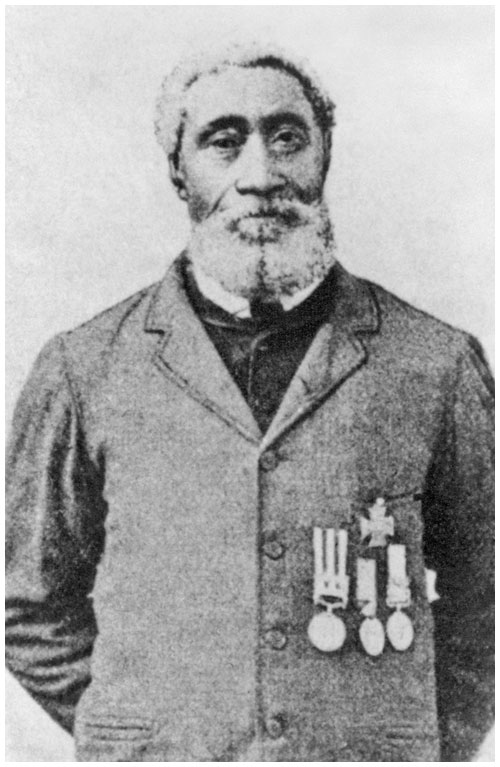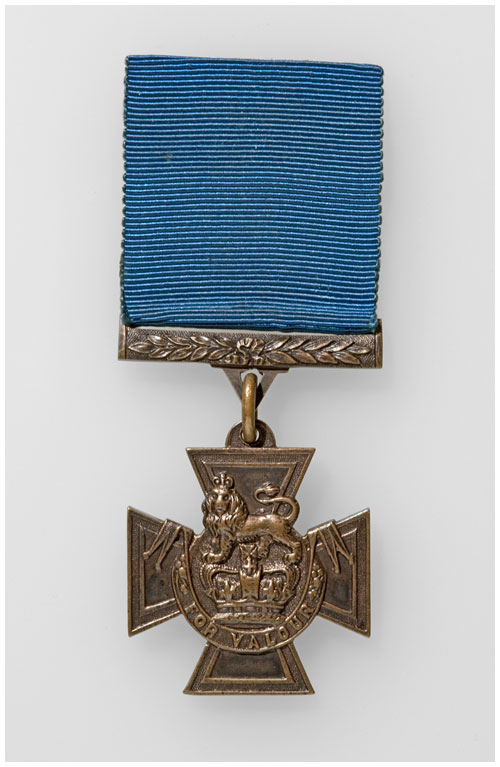
Historical Context
William Hall's Royal Navy career coincided with a period of rapid and often violent expansion of British imperial power worldwide: in eastern Asia, on the Indian subcontinent, and elsewhere. While Hall had no role in shaping imperial policy, the actions of which he was a part were instrumental in extending and consolidating colonial rule over large parts of the non-British world. These actions should be understood in the context of the broader processes of imperialism and resistance of which they are a part. The conflict in which Hall was decorated is today understood as the Indian Rebellion of 1857, a sustained campaign of resistance to the British East India Company's abusive governance.
Early Life
William Hall was the first Black person, the first Nova Scotian and the third Canadian to receive the British Empire’s highest award for bravery, the Victoria Cross. The son of formerly enslaved people, Hall was born in 1827 in Horton, Nova Scotia and grew up during the age of wooden ships. He worked for several years in shipyards, building ships for the merchant marine. He then joined a crew of traders and had visited most of the world’s important ports before he was eighteen.
Joining the Navy
A search for adventure may have caused young William Hall to enlist in the Royal Navy in 1852. He served as an Able Seaman aboard the HMS Rodney, including two years in the Crimean War. His duties found him working heavy guns with ground forces, winning him British and Turkish medals.
After the war, Hall joined the crew of HMS Shannon as Captain of the Foretop. It would be his service with Shannon that led to his Victoria Cross.
Crisis in India
Shannon was on its way to China when an uprising began in India, sending the ship to Kolkata (Calcutta) instead. The rebel army had a small British force under siege in the city of Lucknow. Hall’s ship, along with two others, arrived in India and landed four hundred sailors and marines. Their group brought heavy ship’s guns by boat and on foot for more than 1000 km. They then joined another relief force and headed to Lucknow.
Act of Valour
To save the trapped soldiers and civilians, the relief force first needed to take over a mosque protected by thick walls. When the guns could not break through, two were ordered closer to the wall to try and make an opening, putting the crews under heavy fire. Hall was at one of these guns.
“I remember,” Hall said, “that after each round we ran our gun forward, until at last my gun’s crew were actually in danger of being hurt by splinters of brick and stone torn by the round shot from the walls we were bombarding.”
Eventually, only Hall and one other officer were left standing at their gun. Under constant fire, they worked the gun until the building was captured.
For his bravery under fire, Hall was awarded the Victoria Cross. He received his medal in October of 1859 aboard his new ship, the HMS Donegal. He went on to serve on many other ships before retiring after twenty-four years with the Royal Navy.
After Retirement
Hall moved back to Nova Scotia to live with his sisters on a farm in Avonport. He lived there unrecognized until 1901, when Prince George (later King George V) visited Nova Scotia. Hall wore his Victoria Cross and other service medals at a military parade held for the prince. After noticing them, the prince started a conversation with Hall and brought attention to his service.
William Hall died in 1904 and was buried without military honours. Thirty-three years later, a campaign to have his actions recognized by the Canadian Legion was started. It took eight more years before he was reburied in the grounds of the Hantsport Baptist Church. A monument honoring his service stands there today.
Hall’s name has gone on to be honored in many places, from the Decoste-Hall Educational Program in Montreal to the annual gun run of the Nova Scotia International Tattoo. Most recently, the Royal Canadian Navy named a new offshore patrol vessel the HMCS William Hall.
